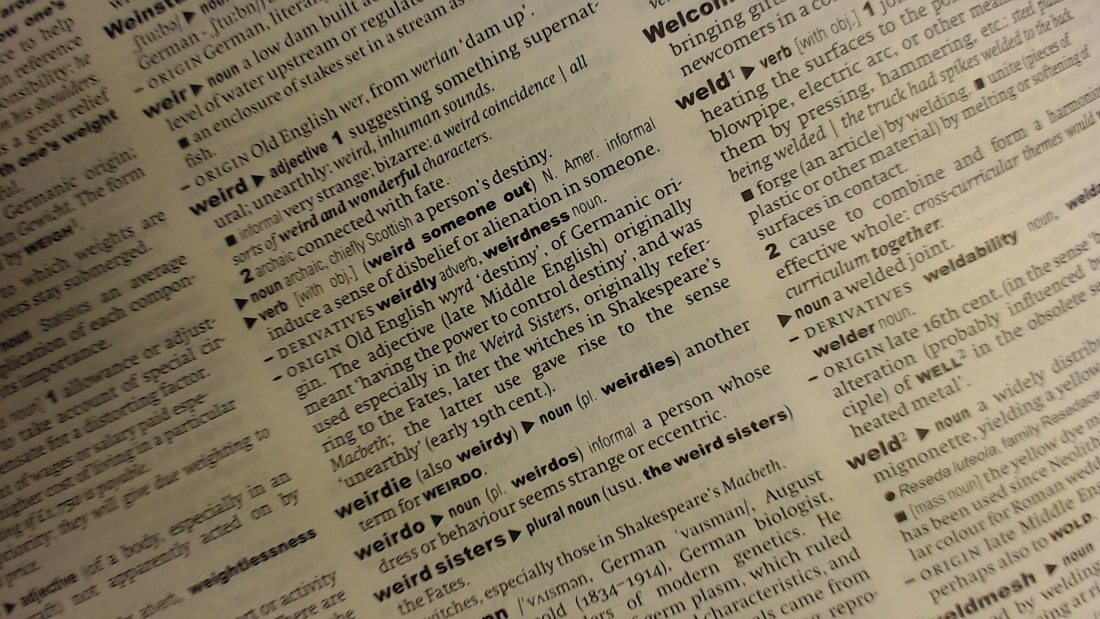|
You’re So Weird!
The Thursday Thesis - 26/04/18 Nina was not a happy camper – not by a long stretch. The plan I’d persuaded her to test was working beautifully, and people were noticing... Nina had been very down and depressed for a few years, so I invited her to experiment with being positive, optimistic, and unconditionally happy - just for a change. The test was supposed to last for a few weeks – just to see if she liked being deliberately happy better than being depressed. Now, it wasn’t that Nina had a problem with depression – she was very good at it, as a matter of fact – but it wasn’t making her happy or fulfilled. No surprise there, then. Anyway, she agreed to play my “stupid mind-game” and, six weeks into the programme, she was having a lot more fun, laughing more and thoroughly getting under the skin of her downbeat, unhappy co-workers. In fact, she’d been so happy that the misery-guts crew were convinced she’d either fallen in love or found God. Either way, it wasn’t going down well with the glumsters that she’d dare to flounce into work and actually enjoy her day. Such effrontery! They asked her to stop being so damned happy, because she was getting them down! They asked what was wrong with her. They said it wasn’t normal for someone to be that happy! Then it happened – someone called her “weird”. Now, Nina’s a shy sort of woman who likes to keep a low profile, so the W bomb rattled her mightily. All I could do was grin at her story. “You are weird” I said, “That’s what I like about you”. She threw me one of those looks that somehow manage to convey disbelief, fury and bewilderment all at the same time. “How can it ever be good to be weird?” She asked. “Because weird is such a fabulous word, and such a fabulous thing to be”, I said. I pulled down my Oxford Dictionary of English and flapped around a bit until I found the definition of weird. Here’s what it said: “WEIRD: adj. 1, Suggesting something supernatural, unearthly. Informal: very strange, bizarre. 2, archaic, chiefly Scottish: a person’s destiny. ORIGIN: Old English wyrd “destiny” of Germanic origin. The adjective (late Middle English) originally meant “having the power to control destiny”, and was used especially in the Weird Sisters, originally referring to The Fates...” Nina considered that definition for a moment, and I could see the understanding turning the corners of her mouth upwards. She “got it” - why I believe that the nicest thing anyone has ever said to me is “You are so weird!” It even beats that precious and tender moment when my then-girlfriend said I was the oddest person she’d ever met. I understand that many people would be insulted if they were called weird – but I revel in it. Why would I choose to be pleased to be weird? Because the word itself denotes other-worldliness, the supernatural and the mysterious: what’s not to like about that? I also love the connotation of being able to control my own destiny. As for Nina, she’s happy to be weird, and her colleagues still think she’s weird to be happy. Which side of the fence are you on, and how wonderfully weird are you going to be today? I’m off to dree my own weird and be annoyingly chirpy. Happy Thursday, you weirdo!
1 Comment
16/5/2018 22:55:51
Weird would always be an understatement for any human being. Who in his right mind would intentionally set himself up on a heartbreak all the time? Only humans are capable of that. Who would kill other creatures and fool themselves into thinking that they're actually more delicious and good for our health? Humans are the real epidemic. Yet we treat ourselves as if we are always superior. I heard we did not even come from here. Now that's one weird stuff. The only ones who care about the environment were those who were what we can call "offsprings of aliens and earth's inhabitants"
Reply
Leave a Reply. |
Share it with your friends
It's Like This...The Thursday Thesis shares ideas which I think are worth spreading. Archives
May 2022
Categories
All
All content on these pages is the intellectual property of the author, unless otherwise stated, and may not be used in any form or reproduced under any circumstances without the authors permission.
|

 RSS Feed
RSS Feed